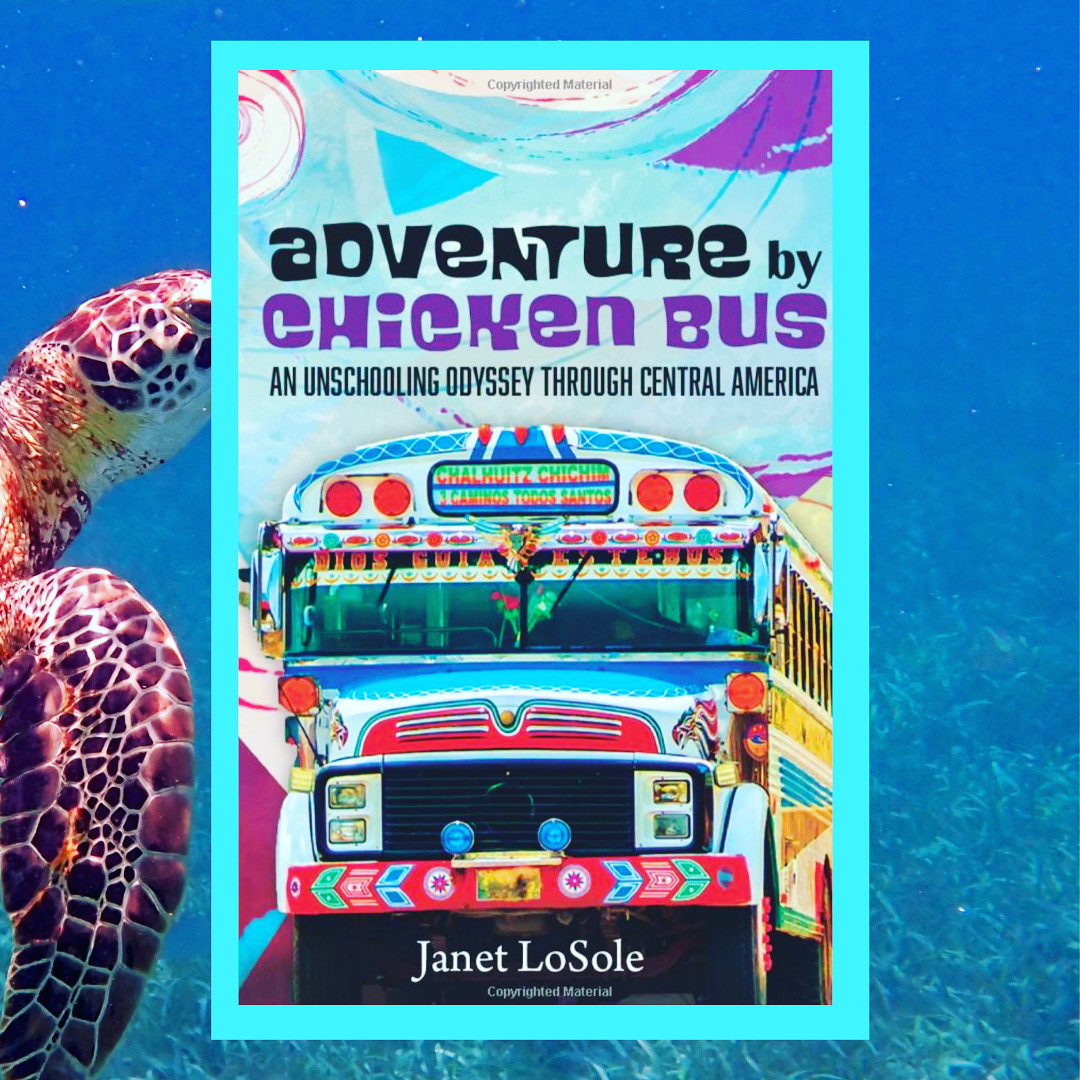⭐️⭐️⭐️⭐️ 1/2
[responsivevoice_button buttontext=”Listen”]
Perfectly balanced, this impeccable travel memoir seamlessly blends a warm and engaging family narrative, an eco-conscious message deeply relevant to every member of this planet, and an up-close-and-personal look at some of the most challenging, beautiful, remote and culture-rich areas available to back-packers in Central America.
The author and her husband, middle-aged Canadian teachers, determined to provide their two young children with the hands-on empathetic learning only immersive traveling can provide, garage-sale their suburban life and all its detritus, and bundle up the family for an intensive eighteen-month backpacking experience across the coastline of rural Central America.
Settling mainly in various locations across Costa Rica the first year, the second year provides the author, her husband Lloyd, and children – Natalie (5 years old) and Jocelyn (8 yrs old) – a broader sweep of the surrounding countries of Nicaragua, Honduras, Belize, Guatemala and Mexico. Living mainly in hostels, motels and campsites, and subsisting on foodstuffs and produce available to locals, the experience is as community-immersive as can be accommodated safely.
On a strict budget, the family conducts most inter and intra-country travel using “chicken buses” – described by the author as “run-down school buses from North America sold to Latin America, where they are painted in bright colors, updated with stereo speakers and more seats” and used to carry passengers and their cargo (which can consist of everything from sacks of potatoes or avocados to live and squawking chickens).
Localized educational day-trips for the children make for interesting reading – consisting of everything from tours of coffee and chocolate farms, to spelunking with stalactites and stalagmites, explorations of Mayan ruins and pyramids, volunteering at endangered turtle nesting sites and even a visit to a monkey sanctuary inhabited by a roguish capuchin named Mickey.
Battling sweltering heat, and the ever-present threat of de-hydration; claustrophobic jam-packed buses; crime and safety issues; tarantula spiders, snakes and insects; fevers, viruses and accidents; the family cannot help but learn from their first-hand experiences of simple lives lived close to the land, (in most cases burdened by extreme poverty) and the crushing tide of advancing commercialism and its waste.
I left the pages of this book feeling thoughtful – It’s impossible not to be touched by the earnest optimism fueling this journey (and this narrative) and the heart-felt belief that we can expand our world (and the world of our children) through experiential learning.
A great big thank you to the author for an ARC of this book. All thoughts presented are my own.



